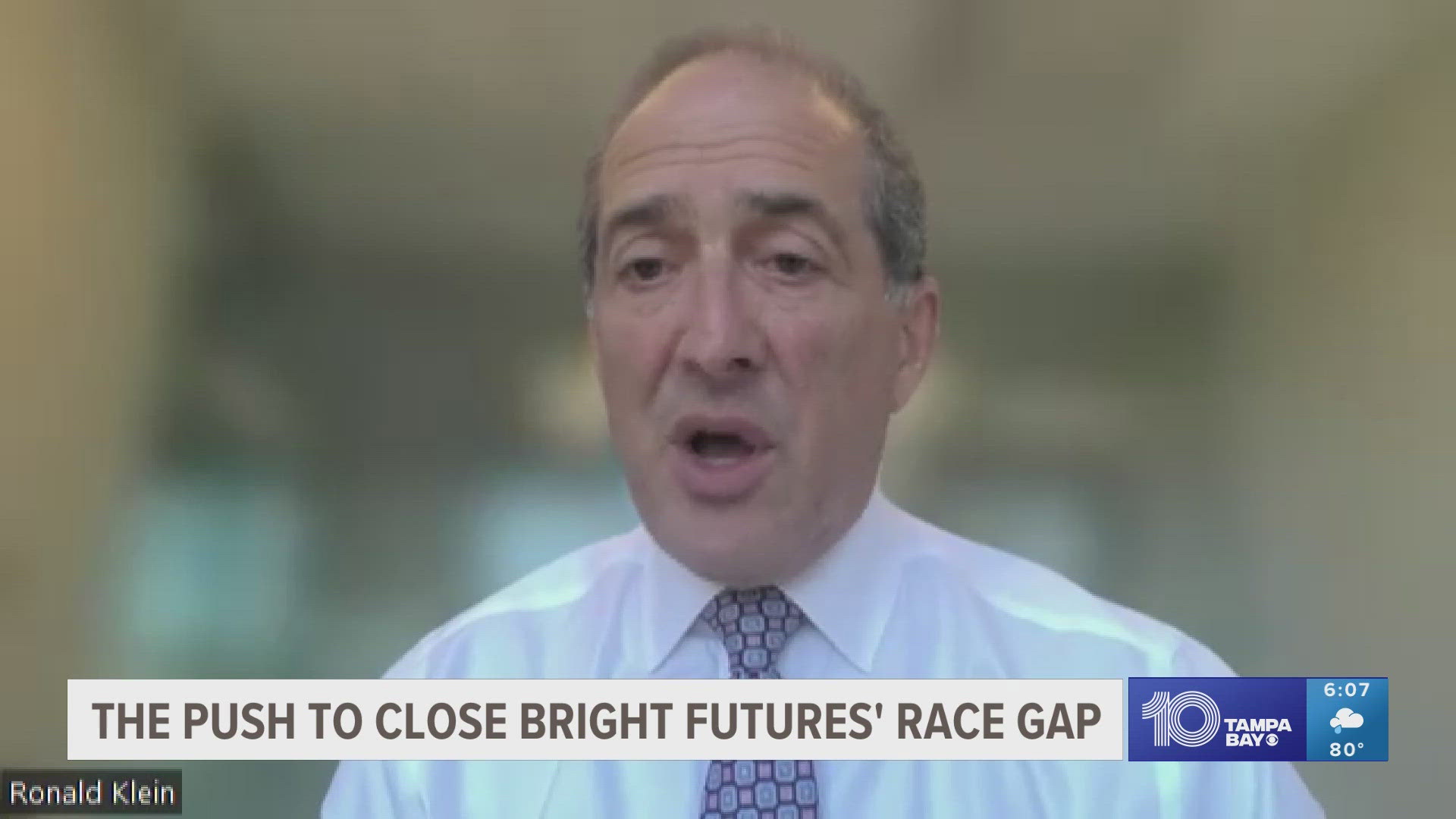TAMPA, Fla. — Some leaders are now calling for state law to change after 10 Investigates exposed a racial inequality written into Florida law.
That includes the former state senator who introduced the bill in 2000.
For 24 years, the law has given certain students different standards to qualify for Florida’s Bright Futures scholarships, depending on their race.
Malik Moore says he knew he wanted to work in politics since he was 5 years old.
“I had a law practice in my room with teddy bears,” Moore said. “My idea of reading as a kid was statute books and a Black's Law Dictionary.”


Moore knew tuition would be a burden for his family. He hoped Florida’s Bright Futures Scholarship Program would be the answer.
Florida students who achieve certain benchmarks when it comes to their GPA, coursework, college entrance exam scores, and volunteer or work hours can get their in-state tuition partially or fully covered.
Moore said he didn’t qualify because of his SAT score.
“I applied for Bright Futures, couldn't get that," he said. "I was never a good test taker. But I had good grades. I was a well-rounded student."

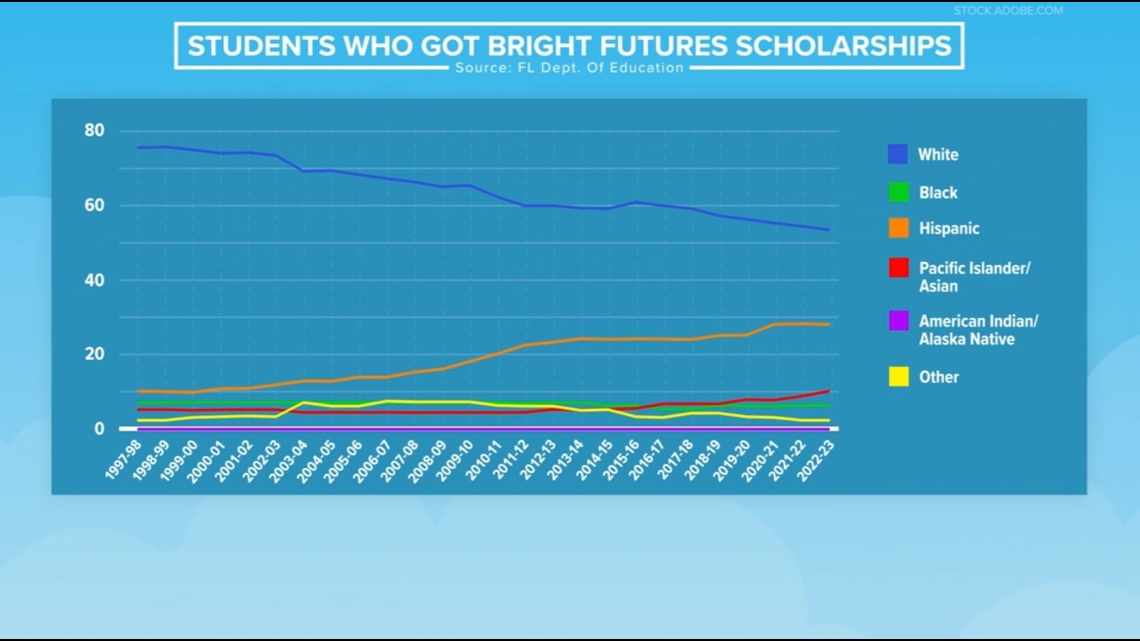
10 Investigates found out the future is not equally bright for all students. There’s a persistent racial gap when it comes to who gets those scholarships.
The percentage of Hispanic Bright Futures recipients has tripled since the scholarship program started.
Meanwhile, the percentage of Black students getting scholarships has remained stagnant over time. For nearly three decades, it’s never been more than 7 percent.
10 Investigates created our own database showing who’s getting Bright Futures Scholarships and how much that program has cost over the years.
“It's disheartening to know that there hasn't been any movement for African American students,” said Dr. William Hudson Jr., VP for Student Affairs at Florida A&M University – the only public historically Black university in Florida.
The latest state data shows that 37 percent of students in Florida public schools are Hispanic. They get 28 percent of Bright Futures scholarships.
That same data shows that 21 percent of students in Florida schools are Black. They get 6 percent of the scholarships.

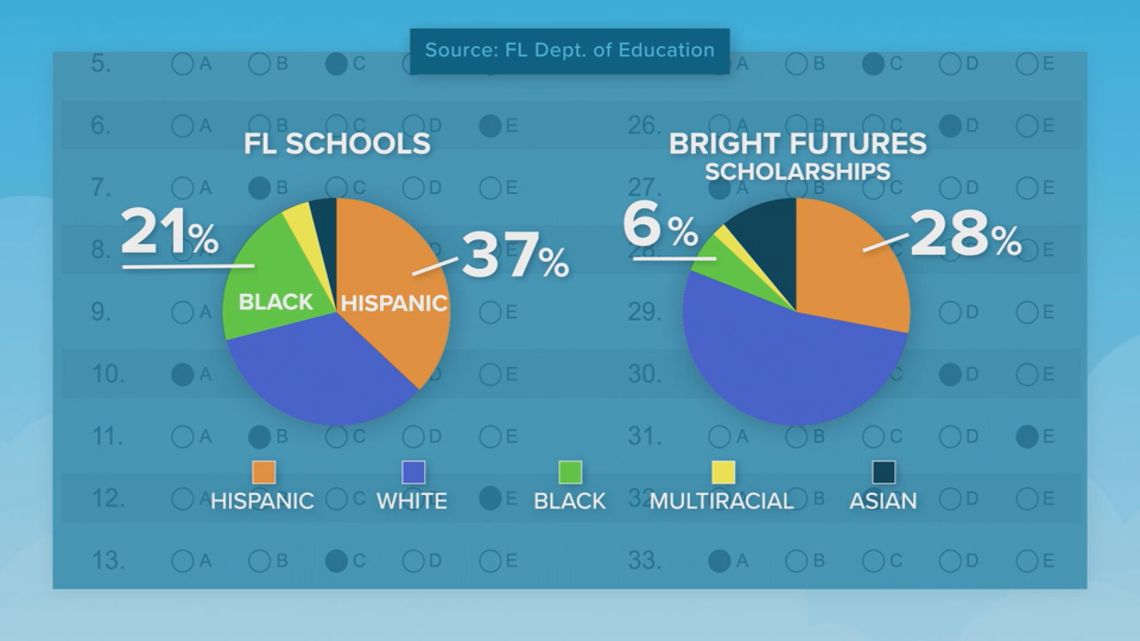
Dr. Hudson said Bright Futures scholarships can have a big impact on students’ success.
“It makes a difference on the retention, progression, and graduation of students," he said. "Because you may have students who would have been eligible for Bright Futures having to take a job to work, maybe take less credit hours, even sit out a semester, because they can't afford to go to college because of the costs.”
We reported last month that a state law passed in 2000 may be partially to blame for the Bright Futures racial gap.
Out of the five College Board National Recognition Programs, including the National African American Recognition Program, only students in the National Hispanic Recognition Program get their test score requirements waived.

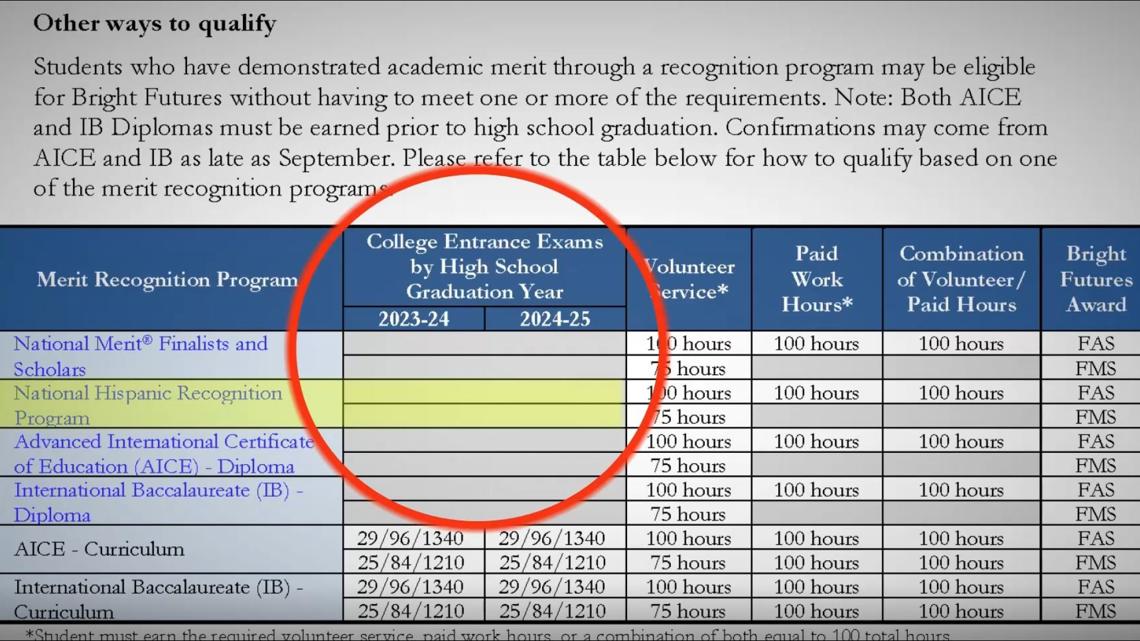
Former State Sen. Ron Klein introduced the bill 24 years ago that carved out the minimum test score exemption for students in the National Hispanic Recognition Program.
He now tells 10 Investigates the law is not having the effect he intended.
“This should not be law,” Klein said. “My intention, at least, would have been to have a law which allowed as many minority students who meet certain criteria to get into our state university system.”

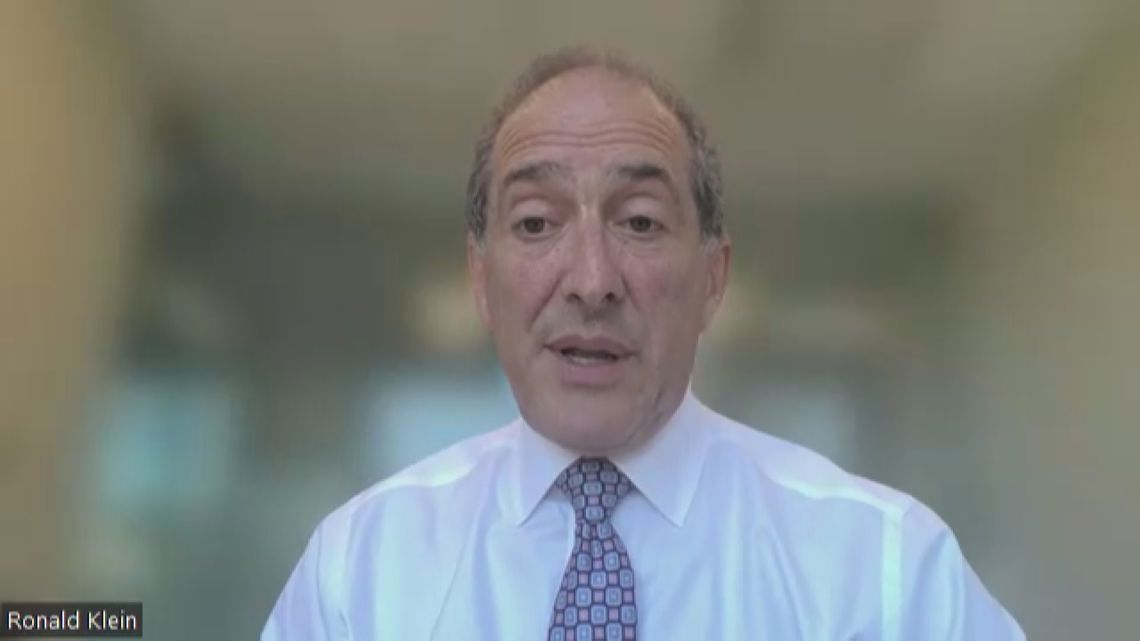
The Florida legislature unanimously approved his bill in 2000.
“I wish this would have been pointed out 10 years ago, 15 years ago. If the trajectory was to give one group an advantage and another group to not move in the right direction, that should have been corrected a long time ago. No, the legislature needs to look at these numbers and fix it,” said Klein.
State Rep. Dianne Hart says she’s in.
“We’ve got to do something about that. That’s not fair,” the Hillsborough County Democrat said. She's running for reelection to continue representing Dist. 63. “That’s a no-brainer. Why not allow Black children that opportunity as well?”
Hart said 10 Investigates’ story prompted her to work on writing a bill that would expand Bright Futures’ minimum test score exemption to include students in the National African American Recognition Program.
She said she’s ready to push back against any legislators who argue that waiving minimum test score requirements for more people would make Bright Futures too expensive to sustain.
“We seem to print money in Tallahassee. So, I don’t think we really have a problem with creating dollars when we put billions of dollars into allowing major corporations to get huge tax breaks,” Hart said.
Oh, and remember Malik Moore? He’s Rep. Hart’s Chief of Staff now.

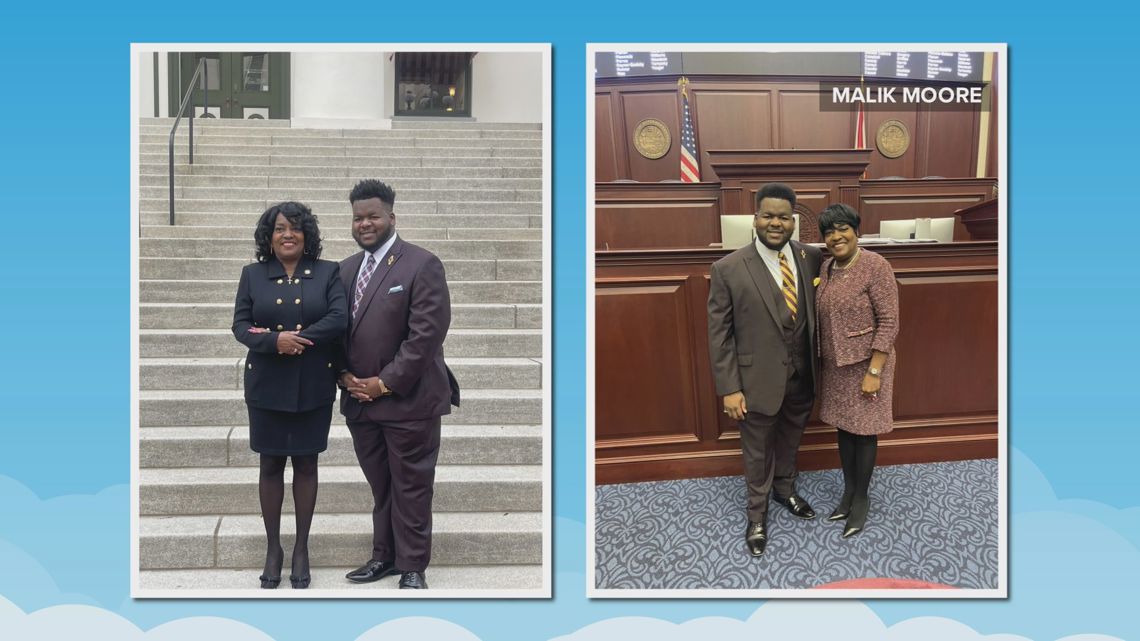
“You can't dictate a person's future based off a standardized test," Moore said. "I ended up with a master's degree. Show me where you put your money, and I’ll show you what you care about. We spend so much money imprisoning people, but yet we claim we’re the best state, we’re the freest state. How can you be free if you don't even have the freedom to go to school?”
If a bill gets approved by the state legislature and governor, the soonest it could take effect would be the summer of 2025. That means the Class of 2026 would be the first to feel its impact.

